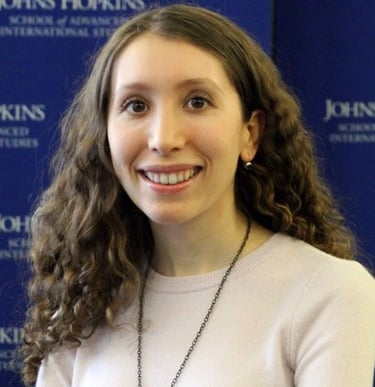Agenda
Note: Subject to change. Additional speakers to be announced.
Tuesday, April 28, 2026
Wednesday, April 29, 2026
Thursday, April 30, 2026
Speaker Biographies
Nancy Skinner
Commissioner
California Energy Commission
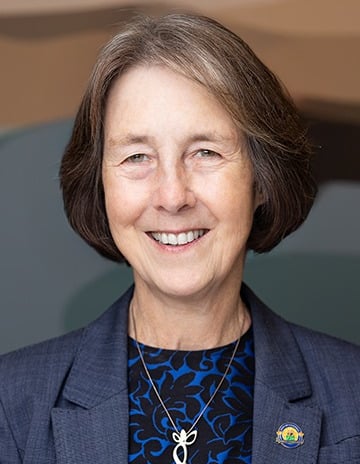

Commissioner Nancy Skinner is serving her first term on the California Energy Commission (CEC). Governor Gavin Newsom appointed Nancy in January 2025 to serve as the CEC’s engineer/scientist member.
She was a state senator at the California State Senate from 2016 to 2024 and an assemblymember at the California State Assembly from 2008 to 2014. She also served on the Berkeley City Council from 1984 to 1992. From 2015 to 2016, Nancy was a senior advisor at the Energy and Efficiency Institute at the University of California, Davis, and a lecturer at the Goldman School of Public Policy at UC Berkeley.
She has worked on climate and sustainability issues for a number of organizations, including the United States director at The Climate Group; international director and United States director for the ICLEI-Local Governments for Sustainability Climate Protection Campaign, and executive director at ICLEI-US Local Governments for Sustainability.
Nancy was the executive director of the Graduate Assembly at UC Berkeley and was a writer/researcher at Earthworks Press. She earned a bachelor of science degree in conservation and resource studies and a master of arts in education from UC Berkeley. She lives in Berkeley.
James Mater
Director of Strategy, Smart Grid
Quality Logic
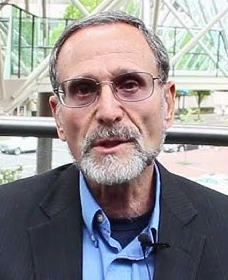

James co-founded QualityLogic and is currently the director of strategy for QualityLogic’s Smart Energy business. From 2001 to 2008, James oversaw QualityLogic as President and CEO. From 1994 to 1999, he founded and built Revision Labs, which merged with Genoa Technology to become QualityLogic. Prior to Revision Labs, James held product management roles at Tektronix, Floating Point Systems, Sidereal and Solar Division of International Harvester. He holds a bachelor’s degree in physics from Reed College, Portland, OR and an MBA from the Wharton School, University of Pennsylvania.
Tim Zgonena
Principal Engineer
Energy and Industrial Automation
UL
Tim Zgonena is a grid interconnectivity expert whose work helps advance grid efficiency, resiliency and safety through UL Solutions’ standards development and conformity assessment services.
Tim has worked at UL Solutions since 1990, and in renewable energy resources, equipment and systems since 1996. Now serving as a principal engineer for Energy and Industrial Automation, Tim is a Distinguished Member of Technical Staff (DMTS) in the William Henry Merrill Society — a designation that recognizes staff members who make significant technical contributions to the safety missions of UL Research Institutes, UL Standards & Engagement and UL Solutions. He also earned an International Electrotechnical Commission (IEC) 1906 Award for exceptional contributions to the IEC’s work in developing global electrical safety standards.
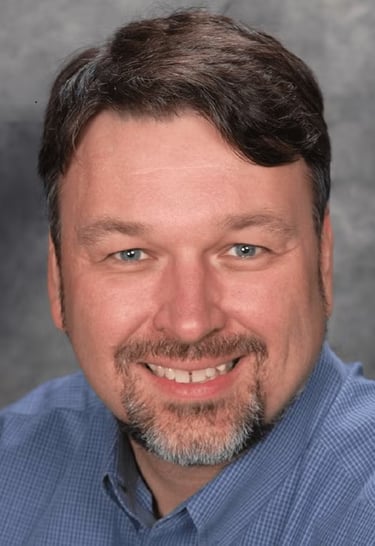

Zach Woogen
Executive Director
Vehicle-Grid Integration Council (VGIC)
Zach is the Executive Director for VGIC, where he leads regulatory, policy, and market development efforts, covering utility rate and program design, interconnection rules and regulations, and managed charging and V2X technology in the leading VGI markets. Previously, Zach was a Senior Manager at Strategen, supporting go-to-market strategy for clients in the V2X and smart charging space.
Prior to joining Strategen, Zach was a Project Manager with Bay-Area Environmentally Aware Consulting Network (BEACN) in energy strategy. He holds a Bachelor of Science in Environmental Economics and Policy from the University of California, Berkeley.
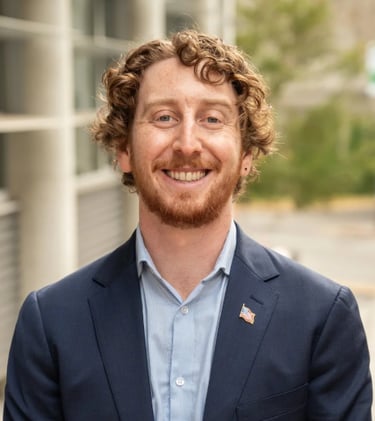

John Holmes
Sr. Principal Energy Advisor
American Honda Motor Company
John Holmes is a Senior Principal Energy Advisor at American Honda Motor Company with over three decades of expertise in electric and hybrid vehicle research, design, diagnostics, and manufacturing, as well as Vehicle-to-Grid (V2G) and Plug-in Hybrid Electric Vehicle (PHEV) technologies. A seasoned leader in sustainability, energy optimization, and program management, he has driven innovations in energy storage IP, product development across consumer, commercial, and industrial markets, and strategic cleantech ventures. John's career spans senior roles at UC San Diego, San Diego Gas & Electric, and multiple clean energy startups, combining technical depth with business acumen to advance transportation electrification, energy systems integration, and policy-driven market solutions.
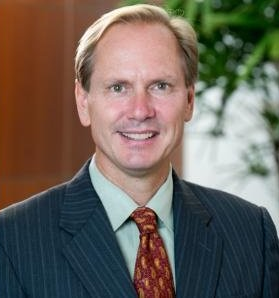

Blake Heidenreich
Strategic Advisor
Customer Solutions Program Design & Development
Southern California Edison
At Southern California Edison (SCE), Blake has spent the past four and a half years working in the Electrification Department on the Strategy & Program Development team focused on Transportation Electrification. Blake currently contributes to SCE's VGI strategy and the coordination between teams that are impacted by the projected growth of EV and VGI adoption. He leads three initiatives aimed at the integration of EVs into current pilots or the development of new programs / rates that will support customer participation in both V1G and V2G. Collaboration externally with aggregators, EVSEs, and OEMs has helped inform internal efforts that builds upon industry capabilities to enable and incentivize VGI for SCE's customers.
Prior to VGI, Blake lead the development at SCE of a program that had funding approved for over $50M to support the installation of charging stations at New Construction Multi-family sites through SCE's Charge Ready Light Duty program. Projects while on the strategy team have also included the initial development phases of additional charging station programs, research on TE, and the exploration of electrification opportunities outside of TE.
Prior to joining SCE, Blake gained experiences at Deloitte Consulting, Google, and entrepreneurial endeavors in both finance and the non-profit sectors. Blake's first professional experience in the EV industry was during an internship at Tesla. As a loyal Wolverine, his alma mater from undergrad and grad school at the University of Michigan has lead to his joy of college football. Originally from Southeastern Michigan, Blake now lives in Southern California and pursues his greatest hobby of traveling when appreciating life outside of work.


Andrew Cifala
Strategic Planner for Grid Modernization
Keysight Technologies
Andrew Cifala is the Strategic Planner for Grid Modernization at Keysight Technologies, where he shapes strategies and technologies to accelerate the transformation of the modern power grid. With expertise spanning distributed energy resources, renewables, microgrids, energy storage, grid interconnection, EV charging infrastructure, and vehicle-to-grid integration, he bridges the gap between business strategy and technical innovation. Andrew has led complex R&D initiatives, contributed to key industry standards, and guided new technologies from concept to market adoption. An active member of IEEE, UL, and EPRI working groups, he plays a leading role in advancing interoperability, reliability, and value creation for the evolving energy ecosystem. He holds an M.S. in Electrical Engineering from Montana State University–Bozeman and a B.A. in Mathematics with an engineering concentration from Carroll College.
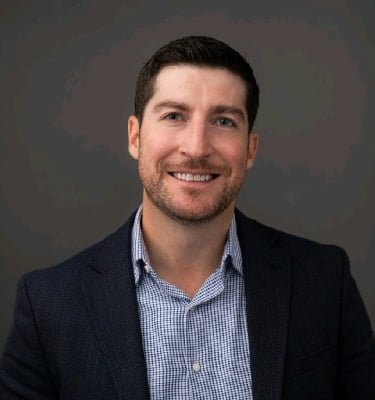

Alex Macharia
VGI Program Manager
The Mobility House
Alex Macharia is the Vehicle-Grid Integration (VGI) Program Manager at The Mobility House, where he leads commercial bidirectional charging initiatives and new product introduction (NPI) projects across North America. With more than a decade of experience spanning automotive development, electrification, and clean-tech, Alex has built a career at the intersection of technology, strategy, and program leadership. He previously served as Senior Technical Program Manager for Automotive Partnerships at Nuvve, advancing OEM collaborations to deploy vehicle-to-grid solutions, and spent over 10 years at Cummins in roles ranging from OEM integration to global applications leadership. Alex’s expertise covers EV product strategy, charging infrastructure, grid-interactive technologies, and cross-sector partnerships. He holds a Master of Science in Engineering from Purdue University and a Business Certificate from Indiana University’s Kelley School of Business.


Megan Jarriel
Systems and Controls Manager
Heliox
Megan Jarriel is a Systems and Controls Manager at Siemens, where she leads technical development and integration for advanced eMobility solutions. With prior experience as Lead Systems Engineer at Heliox, Megan has contributed to the design, testing, and standardization of high-power charging systems, including active involvement in the SAE J3105 standard committee. Her career at Siemens has spanned multiple engineering and leadership roles, from hardware and software development to project management, giving her a strong foundation in system reliability, troubleshooting, and customer-focused solutions. A graduate of Purdue University in Electrical Engineering, Megan combines deep technical expertise with cross-functional leadership to advance innovative, safe, and scalable EV infrastructure that supports the transition to electrified transportation.


Elijah Sinclair is Senior Program Manager for Clean Transportation at the Massachusetts Clean Energy Center (MassCEC), where he leads initiatives to advance e-bike adoption, electrify vehicles-for-hire, and demonstrate vehicle-to-grid integration. With experience spanning program design, stakeholder engagement, and technology deployment, Elijah has played a pivotal role in shaping Massachusetts’ clean mobility landscape, including launching the statewide E-Bike Voucher Program and supporting innovative grid-connected transportation pilots. His prior work at Synapse Energy Economics and in energy efficiency consulting honed his expertise in policy, market analysis, and sustainable technology adoption. Elijah is a Brandeis University graduate in Economics and Environmental Studies.


Yukihiro Hatagishi
Electric Vehicle Charging Hardware Systems Researcher
National Renewable Energy Laboratory
Yukihiro Hatagishi has a strong background in power electronics, and has contributed to the development of vehicle-to-grid using AC (V2G AC). With his proven success in leading a team to develop an on-board charger compliant with IEEE 1547-2018 and SAE J3072, and as a major contributor to a V2G AC project led by Southern California Edison and Stellantis, his focus has shifted to a V2G AC system including the support of standards, and he is contributing to the expansion of the evaluation platform to address V2X AC at NREL.
His standard participations are: UL1741SC, ISO 15118-20 Addendum, V2G AC Profile, SAE J2847/3, 5 and SAE J3072.
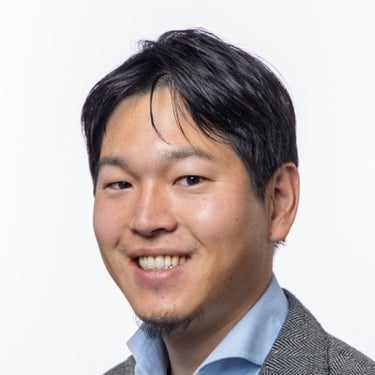

Shohei Nakamura
Assistant Chief Engineer
BEV Energy Service Ecosystem Development Dept.
Honda Motor Co., Ltd.
Mr. Shohei Nakamura is Honda Motor's Assistant Chief Engineer leading EVSE development projects with a focus on grid integration. He manages cross-functional teams, oversees project planning and leads execution for Honda's residential EVSE lineup. Mr. Nakamura also contributes to strategic planning for energy services, aligning product development with emerging market needs. As the project-lead, Mr. Nakamura's work to introduce V2G-AC functionality in Honda's EVs is driving innovation in bidirectional charging technologies. With a background in power plant manufacturing and electric utilities, he brings deep insight into power infrastructure and grid systems, bridging hardware engineering and energy strategies to support the future of sustainable e-mobility.
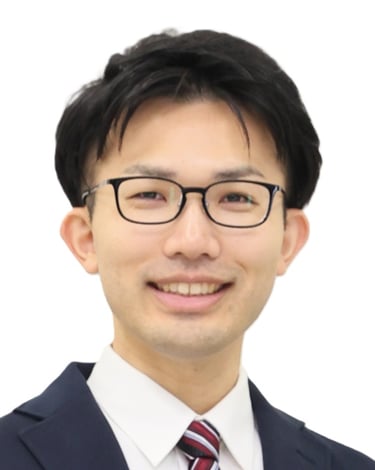

Richard Carlson
Principal Research Engineer
Idaho National Laboratory
Richard “Barney” Carlson is a Principal Research Engineer at Idaho National Laboratory (INL) with over two decades of experience advancing electrified transportation technologies. At INL’s Advanced Vehicles Group, he leads research on electric vehicle charging infrastructure—including DC fast charging, extreme fast charging, and wireless power transfer—while addressing integration with autonomous, connected, electric, and shared (ACES) mobility systems. His work spans the development and harmonization of industry codes and standards, cybersecurity risk assessment, and the creation of novel concepts to improve charging safety, efficiency, and performance. Prior to joining INL, Barney was a Research Engineer at Argonne National Laboratory and a Research Test Engineer at General Motors, focusing on advanced vehicle systems and powertrain innovation. He holds a Master’s degree in Mechanical Engineering from the University of California, Davis, where he competed in and helped lead multiple award-winning hybrid and electric vehicle projects.
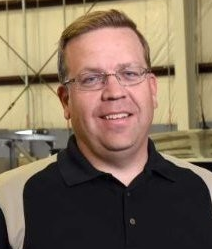

Thomas Carroll
Cyber Security Researcher Pacific Northwest National Laboratory
Thomas Carroll received the B.Sc. degree in chemistry and in computer science and the M.Sc. and Ph.D. degrees from Wayne State University, Detroit, MI, USA, in 2001, 2007, and 2009, respectively. He is currently a Senior Cybersecurity Researcher with the Computational Science Division, Pacific Northwest National Laboratory (PNNL). As a Ph.D. Student, he received a NSF Graduate Research Program Fellowship award to study the incentive-centered design of distributed computer scheduling. He is responsible for more than 30 peer-reviewed publications, a book chapter, and two patents on topics of game theory, situation awareness, cyber security, smart grid, and vehicle systems. His research interests include the development and application of resiliency and zero-trust strategies to enterprise, cyber-physical, and cyber-vehicle systems. He is also the principle investigator of a project examining the cyber security and resiliency of high-powered electric vehicle charging infrastructure and another project designing, developing, and demonstrating zero-trust network access mechanisms to better defend cyber-physical systems in the electric power domain.


Maddy Strutner
Grid Services Manager
Toyota North America
Maddy Strutner is the Grid Services Manager at Toyota North America, where she leads initiatives at the intersection of clean energy, mobility, and grid innovation. Based in San Diego, she brings over five years of experience from San Diego Gas & Electric, where she advanced through roles in regulatory strategy, clean transportation business development, and infrastructure oversight. With a Master of Environmental Science and Management from UC Santa Barbara’s Bren School and a B.A. in International Relations and Global Studies from The University of Texas at Austin, Maddy has a strong foundation in energy, climate, and corporate sustainability.
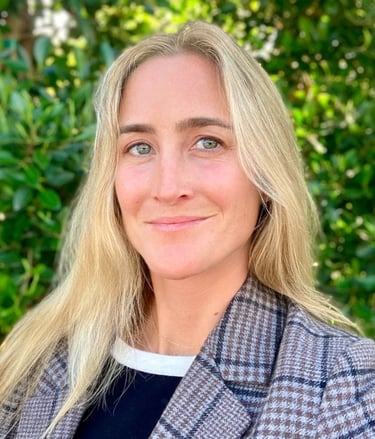

Kristin Landry
Expert Product Manager
Pacific Gas & Electric Company
Kristin Landry is an Expert Product Manager for Vehicle-Grid Integration at Pacific Gas and Electric Company, where they lead large-scale pilot programs demonstrating the value of bidirectional EV charging for grid reliability, resiliency, and sustainability. Their career spans consulting, regulatory, nonprofit, and utility roles—including at the California Public Utilities Commission, Guidehouse/Navigant, and the Clean Energy Leadership Institute—where they’ve advanced emerging technologies, shaped policy, and built programs that expand opportunity and impact. Holding engineering degrees from Stanford (MS, Environmental Engineering) and Northwestern (BS, Mechanical Engineering)
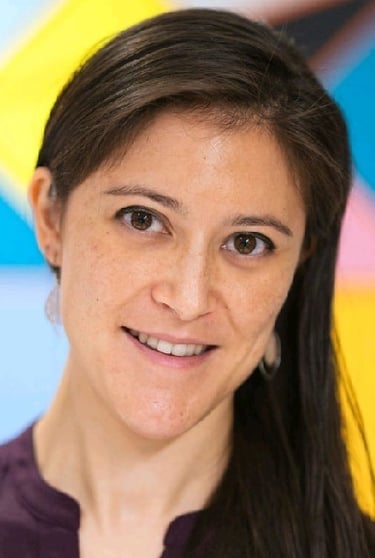

Rodney McGee
Chief Engineer, University of Delaware
Task Force Chair, NACS/J3400 and J3068, SAE International
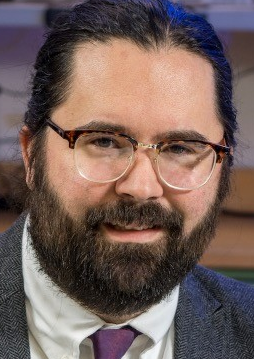

Rodney McGee is a Research Engineer at the Transportation Electrification Center at the University of Delaware. In his role, Dr. McGee leads a team of engineers in designing, testing, and productizing advanced bidirectional EVSE (EV Supply Equipment) and EV systems while working closely with OEMs and suppliers to foster cutting-edge technology development. In addition to his work at the University of Delaware, Dr. McGee chairs SAE's Medium and Heavy Duty Conductive Power Transfer Task Force and the newly formed NACS Coupler Task Force. Through these leadership roles, he actively contributes to advancing industry standards in the electric vehicle sector.
Antony Martin
Group Product Manager - EV Charging
Lucid Motors
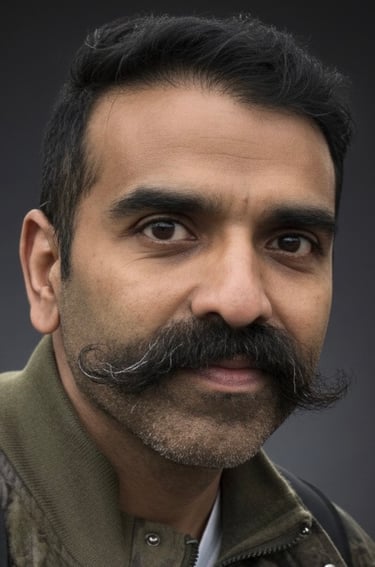

Driving the future of electric mobility, one innovation at a time. Antony Martin is a seasoned technology and product leader with a passion for blending cutting-edge technology with user-centric design. At Lucid Motors, he heads the development of sustainable and advanced charging and energy solutions that empower EV drivers and accelerate the transition to a cleaner grid.
Previously at Ford Motor Company, Antony led Public Charging and Energy Services products, delivering innovative solutions that improved public charging accessibility and introduced grid-integrated technologies like V1G and V2X. His work focused on reducing carbon emissions and lowering the total cost of EV ownership through intelligent, grid-friendly charge management.
His expertise spans data-driven product development, intuitive UX design, and strategic partnerships—making him a key voice in the commercialization of AC V2G technologies. He is committed to shaping a future where electric vehicles are not just modes of transport, but active participants in a smarter, more resilient energy ecosystem.
Ben Burns
Director of Energy Transition
Eaton
Speaking in:
Opening Plenary Session: State of the V2G Union
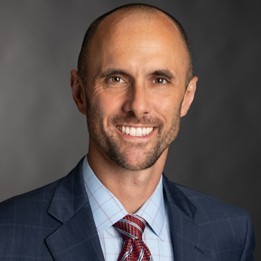

Ben Burns is a business development leader, general manager and enterprise strategist with deep expertise in electric vehicles, clean mobility and energy transition. Currently serving as Director of Energy Transition at Eaton, he leads the company’s bidirectional charging solutions portfolio, enabling EVs to serve as backup power, optimize energy costs, and support grid reliability. At DTE Energy, Ben rose to national prominence in transportation electrification, leading teams of 250+, managing P&Ls exceeding $80M, and driving statewide adoption of EVs and clean energy solutions. Recognized with honors such as Crain’s Notable Leaders in EV (2022) and the Navy and Marine Association Leadership Award, he is a former Marine Corps Captain and Management Consultant at Booz & Company. Ben holds an MBA from Columbia Business School and a BA in English and Political Science from the University of Michigan.
Jared Carson
Director of Sales
Synop


Jared Carson is Director of Sales at Synop, where he helps fleet operators optimize EV charging, integrate with utilities, and unlock the value of advanced services such as demand response, time-of-use optimization, and V2G programs. His work focuses on bridging the gap between fleet operations and energy infrastructure, enabling fleets to electrify at scale without compromising reliability or uptime. Prior to joining Synop, Jared held roles at Enel X, Bloom Energy, Sunrun, and Ecology Action, where he was recognized for driving high-value clean energy and electrification projects across Fortune 500 clients and innovative energy markets.
Leah Brams
Market Development Manager
Highland Electric Fleets


Leah Brams is a dedicated advocate for sustainable transportation and energy solutions, currently serving as a Market Development Manager at Highland Electric Fleets. With a strong background in environmental studies, public policy, and chemistry from Dartmouth College, Leah has developed expertise in market research, policy analysis, and stakeholder engagement. Her work focuses on accelerating the transition to electrified transportation by navigating regulatory landscapes, managing consulting engagements, and identifying market opportunities.
Tim Farquer
Superintendent at Mercer County Schools
Founder, Bus2Grid
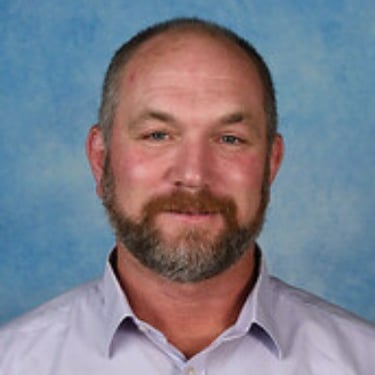

Tim is the founder and administrative lead of Bus2Grid, helping schools electrify their fleets while turning school buses into energy assets. He serves as superintendent for Mercer County Schools. He previously served as superintendent for Williamsfield Schools where he led their fleet electrification efforts. A lifelong educator, from a family of educators, Tim is passionate about electrifying in a way that puts money back into classrooms.
Greggory Kresge
Senior Manager, Utility Engagement and Transportation Electrification
World Resources Institute
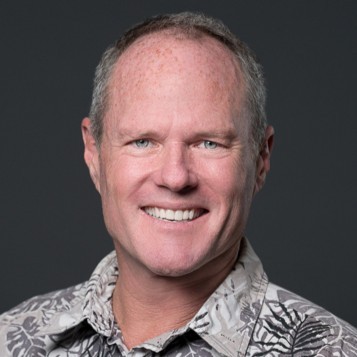

Greggory ("Gregg") Kresge is Senior Manager, Utility Engagement and Transportation Electrification at WRI focusing on school bus electrification and vehicle-to-grid integration.
Prior to joining WRI, Gregg was the Electrification of Transportation-Project Delivery Manager for Hawaiian Electric servicing the islands of Hawaii, Maui, Lanai, Moloka`i and Oahu. In various capacities over a span of 12 years, he worked in two separate island utilities. Gregg was also the Co-chair of the Smart Electric Power Alliance (SEPA) EV Working Group. He is an EV owner since 2013 and lives in a condominium with no access to dedicated charging and is looking forward to increased public charging options.
Gregg holds several degrees including Doctor of Philosophy in Sustainability and Green Building, Master of Business Administration in Sustainability, Master of Science in Environmental Management, and Bachelor of Arts in Economics and Communications. Gregg is also a Lean Six Sigma Green Belt, LEED Accredited Professional in Building Design and Construction (AP BD&C) and a Home Energy Survey Professional (HESP).
Adam Wilkinson
Lead Solution Architect
Irdeto
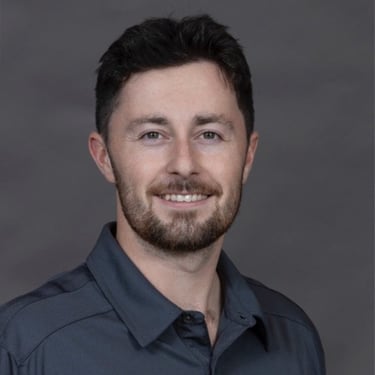

Adam Wilkinson is a Senior Solutions Architect at Irdeto, specializing in cybersecurity and digital trust for the electric vehicle (EV) ecosystem. With over five years of experience in applied cybersecurity, he leads the design and implementation of secure, scalable systems that integrate public key infrastructure (PKI) and trusted ecosystems. Adam played a pivotal role in delivering North America's first live Plug & Charge demonstration at the CharIN Testival in San Bernardino, California, showcasing secure authentication, real-time data exchange, and automated billing in EV charging. He is also a co-chair of international working groups and has led technical demonstrations at major industry test events, bridging business strategy with technical implementation to help organizations navigate evolving standards, regulatory requirements, and complex threat landscapes. He continues to help shape a more seamless, reliable EV charging experience by fostering collaboration across the industry and making charging more intuitive for all users.
Tom Tansy
CEO
DER Security Corp,
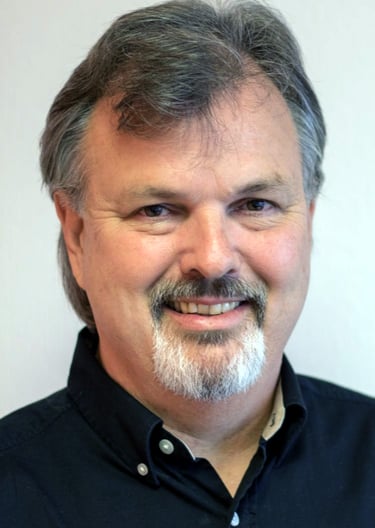

Tom Tansy is CEO of DER Security Corp, a company that implements power-informed intrusion detection systems as a critical defense from attacks on Distributed Energy Resources by nation state actors and other sophisticated adversaries. Tom is also Chairman of the SunSpec Alliance where he leads the distributed energy industry's effort to establish data communication and cybersecurity standards that enable seamless integration of distributed energy systems into the Smart Grid. The approved SunSpec V2G AC standard, implemented by Southern California Edison, will be released to the public in October 2025.
David N. Patterson, P.E.
Executive Director
CHAdeMo Association North America
Speaking in:
V2X in Japan: From Concept to Consumer Product
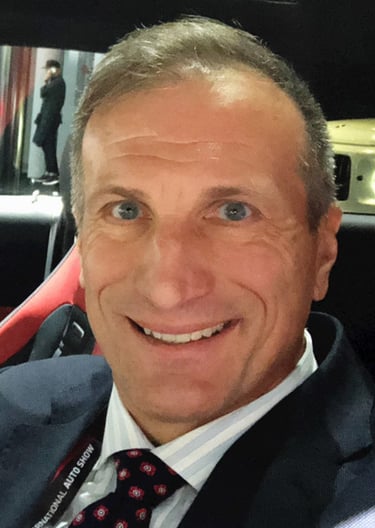

David N. Patterson, PE, is a seasoned automotive engineer and regulatory compliance expert with over 25 years of experience in vehicle emissions, fuel economy, certification, and electrification. As Executive Director of the CHAdeMO Association in North America and President of El Camino Real Consulting Corp., he helps shape the future of clean transportation through technical leadership and strategic advisory services. Previously, he served as Chief Engineer at Mitsubishi Motors R&D of America, where he spearheaded emissions certification efforts and championed the launch of the i-MiEV electric vehicle program and DC fast-charging network. With a BSME from California State University, Fresno, David combines deep technical expertise with a passion for sustainable mobility.
Toshiya Yamamoto
Vice President
Nichicon America
Speaking in:
V2X in Japan: From Concept to Consumer Product
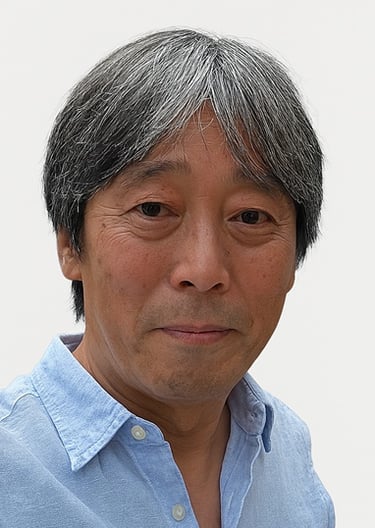

Toshiya Yamamoto is a specialist in new business development in the electronics field for over 30 years. He is Vice President of Nichicon America, Nichicon's US base, where he is developing new businesses in North America. He has led many successful new businesses. In particular, he played a central role in the V2H (Vehicle to Home System) project, which Nichicon introduced in Japan in 2012 as the world's first commercial product. His contributions laid the foundation for subsequently achieving shipments of 35,000 units of the V2H system.
Willett Kempton
Professor
University of Delaware
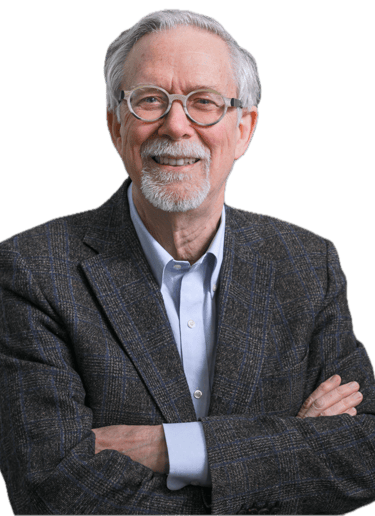

Willett Kempton is Professor in the College of Earth, Ocean, and Environment, the Department of Electrical & Computer Engineering, and Biden Policy School at the University of Delaware. He is co-founder and Associate Director of the Center for Research in Wind.
Prof. Kempton lectures and publishes scientific and technical articles on offshore wind power, electric transportation, and energy analysis. He created the concept of using electric vehicles to provide grid services, holds four patents for technologies integrating electric vehicles with the power grid, and has advanced multiple policies to enable this integration.
Chanel Parson
Director, Clean Energy and Demand Response
Southern California Edison
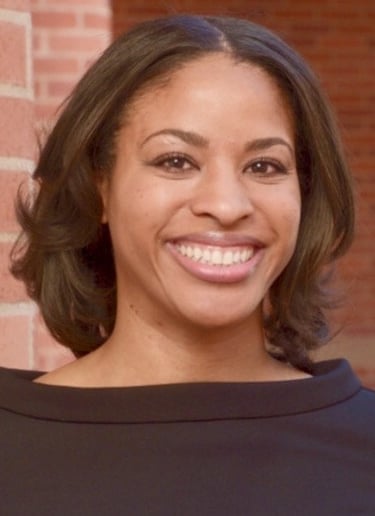

Chanel Parson is Director of Clean Energy and Demand Response at Southern California Edison, where she leads the utility’s demand flexibility strategy and advances adoption of clean energy solutions including electric vehicles, vehicle-grid integration, customer solar and storage, virtual power plants, and demand response. With more than 20 years at SCE, she has held senior leadership roles across electrification, advanced energy solutions, and portfolio management, consistently building high-performing teams and launching new programs that improve grid reliability, performance metrics, and customer outcomes. Chanel brings deep expertise in strategic planning, execution, and change management, paired with a passion for equity, sustainability, and community impact. She holds an MBA from UCLA Anderson School of Management and an MA in Organizational Behavior and Program Evaluation from Claremont Graduate University.
Anna Bella Korbatov
Vice President, Regulatory Affairs
Fermata Energy
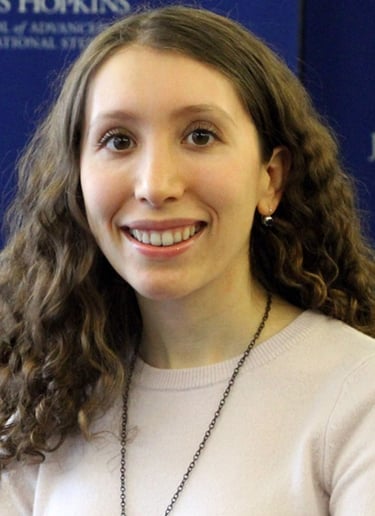

Anna Bella Korbatov is Vice President of Regulatory Affairs at Fermata Energy, where she leads strategic regulatory engagement to accelerate commercialization of vehicle-to-grid and transportation electrification solutions. A solutions-driven climate-tech professional with more than seven years of startup experience, she brings deep expertise across policy advocacy, utility coordination, grant management, business development, and organizational growth. At Fermata Energy, Anna Bella has been instrumental in advancing innovative pilots—such as electric school bus V2G programs—working closely with utilities, regulators, and community partners to deliver grid resilience, emissions reductions, and customer value. She holds a master’s degree in International Economics with a focus on Energy, Resources, and Environment from Johns Hopkins University Paul H. Nitze School of Advanced International Studies, and a bachelor’s degree in Political Science, summa cum laude, from the University of California, Berkeley.
Alex Pawlowski
Regulatory Strategy Manager
Kia America
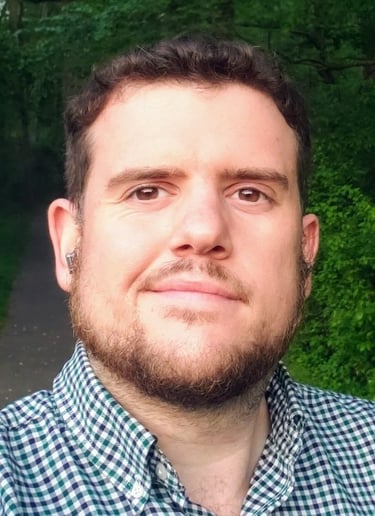

Alex Pawlowski is a Regulatory Strategy Manager at Kia America, where he focuses on GHG, CAFE, and EV regulatory strategy at the intersection of mobility, data analytics, and sustainability. A mechanical engineer and data scientist by training, Alex supports long-range vehicle planning through detailed scenario modeling, regulatory analysis, and infrastructure tracking, and has played a key role in advancing vehicle-to-home and vehicle-to-grid pilots for Kia’s EV portfolio. His background spans automotive R&D, additive manufacturing, fuels and emissions research, and policy-driven analytics, including work at Oak Ridge National Laboratory and Toyota Motor North America. Alex holds an MS in Mechanical Engineering from the University of Tennessee, Knoxville, and a BS in Mechanical Engineering from the University of Virginia.
Vincent Weyl
Vehicle-Grid Integration Principal
California Energy Commission
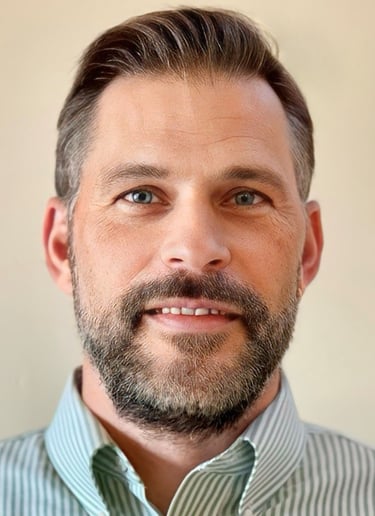

Vincent Weyl is a Vehicle-Grid Integration Specialist at the California Energy Commission, where he focuses on advancing policies, programs, and market frameworks that enable electric vehicles to function as grid resources. With more than 25 years of experience spanning telecommunications, distributed energy resources, EV charging, and smart infrastructure, he brings deep technical expertise and strategic insight to the electrification transition. Prior to joining the public sector, Vincent held senior leadership roles in cleantech, including Senior VP of Growth at IoTecha and VP of Marketing and General Manager of EV Business at Kitu Systems, and served as Vice Chair of CharIN’s North America Policy Committee.
Brittany Blair
Manager, Research & Industry Strategy
Smart Electric Power Alliance (SEPA)


Brittany Blair joined SEPA in June 2021 as a Research and Industry Strategy Analyst after having worked on a collaborative Microgrid Tariff whitepaper with SEPA. In her role, Brittany supports SEPA's research projects on topics including distribution resource planning and managed electric vehicle charging. Prior to joining SEPA, she interned for Newport Consulting on projects pertaining to microgrid business models, net-metering tariff revisions, and transmission & distribution surveys. Brittany holds a MS in Energy Systems Management from the University of San Francisco and a BS/MS in Biotechnology from the University of Nevada, Reno.
Erika Myers
Executive Director
CharIN North America
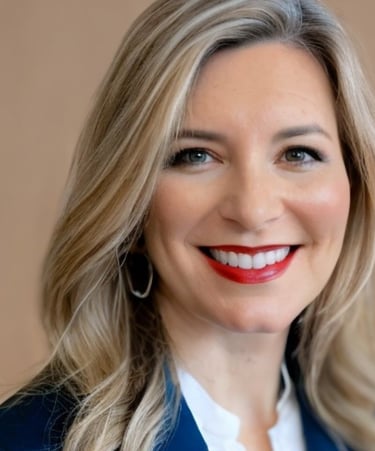

Erika Myers is the Executive Director of CharIN North America, where she leads regional efforts to accelerate the electric vehicle transition through the adoption of open, interoperable charging standards. With nearly two decades of experience across government, nonprofit, and private-sector roles, she is a recognized expert in transportation electrification, vehicle-grid integration, and clean energy policy. Erika previously held senior leadership positions at the World Resources Institute and the Smart Electric Power Alliance, and has advised utilities, policymakers, and global institutions on EV infrastructure deployment and grid integration. She serves as a Research Fellow with WRI, an EV advisor to the U.S. Department of Energy, and a board member of Forth, and is widely recognized for her advocacy on gender equity in e-mobility. A frequent speaker and published thought leader, she also founded EV Love, a platform dedicated to advancing women’s participation in the electric vehicle ecosystem.
Roger Salas
Principal Manager
Distribution System Analysis
Southern California Edison


Roger Salas is a seasoned electrical engineering leader with over 26 years at Southern California Edison, currently serving as Principal Manager of Distribution System Analysis. He specializes in utility distribution engineering, regulatory and generation interconnection requirements, and grid modernization, with a focus on integrating emerging technologies such as microgrids, distributed energy resources, and vehicle-to-home systems. Roger holds a Master of Science in Electrical Engineering from the University of Southern California, with a power engineering background from Cal Poly Pomona.
Peter Evans
President and Founder
New Power Technologies
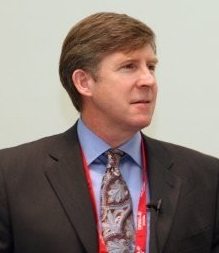

Peter Evans is the CEO of New Power Technologies, where he has spent more than two decades pioneering tools that bring high-definition visibility to electric grids and unlock the value of distributed energy resources. He is the creator of the Energynet® platform, which repurposes legacy utility data to enable advanced transmission and distribution modeling, DER integration, EV charging optimization, and grid performance improvement. Peter has held senior technical and leadership roles across the energy sector, including Senior Power Systems Engineer at X (Google’s Moonshot Factory) working on what is now Tapestry, and board and advisory positions with Silicon Valley Clean Energy and the Purissima Hills Water District.
Peter served the NIST Smart Grid Interoperability Panel and has served on several working groups of IEEE Standard 1547 (DER Interconnection and Interoperability). He has been elevated to Senior Member of IEEE. Peter holds BS degrees in Chemical Engineering and Nuclear Engineering and an MBA from the University of California at Berkeley. He holds U.S. Patents in distributed energy resources and power system analysis and has several additional patents pending. He is a Professional Mechanical Engineer in California and a Chartered Financial Analyst.
Kurt Johnson
Director, Community Energy Resiliency
The Climate Center
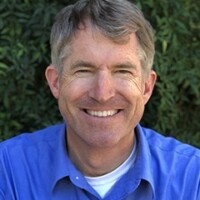

Kurt began working at the Center in 2019. He previously founded and directed a renewable energy project development consulting firm, bringing new projects online ranging from 8 kW to 8 MW. Kurt also founded a small hydropower trade association where he lobbied successfully for regulatory reform before Congress and the Colorado legislature. Kurt also worked in the solar industry for Recurrent Energy and also for the California Public Utilities Commission in San Francisco. Kurt worked at the U.S. EPA for eleven years where he founded the EPA renewable energy program, the Green Power Partnership. Kurt started his career in 1991 working on Capitol Hill in Washington, DC as a Legislative Assistant for U.S. Rep. Richard Swett (D-NH). Kurt holds an MS in Environmental Sciences and Policy from Johns Hopkins University and an MA and BA from Stanford University.
Boryann Liaw, PhD
Founder
High Power Research Laboratory
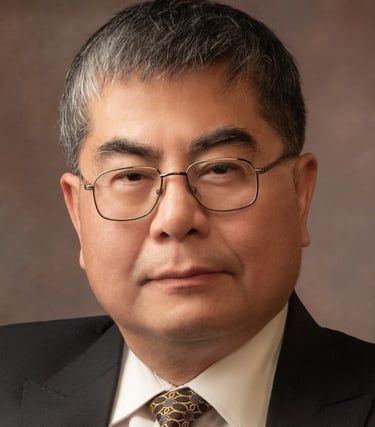

Boryann (Bor Yann) Liaw, PhD is a battery scientist and electrochemical energy systems expert with more than three decades of experience bridging fundamental research and real-world industrial applications. He is the Founder of the High Power Research Laboratory and a Guest Professor at Forschungszentrum Jülich, and previously served as a Directorate Fellow and Department Manager at Idaho National Laboratory, where he led national-scale programs in energy storage, electric vehicles, fast charging, and battery diagnostics. Dr. Liaw spent 27 years on the faculty at the University of Hawaiʻi at Mānoa and holds a PhD in Materials Science and Engineering from Stanford University. His work spans high-energy lithium batteries, degradation and failure mechanisms, battery modeling, state-of-health diagnostics and prognostics, and data-driven/physics-based frameworks, with a consistent focus on translating industrial challenges into fundamental scientific advances.
Brad Beauchamp
EV Product Segment Leader
Blue Bird Corporation
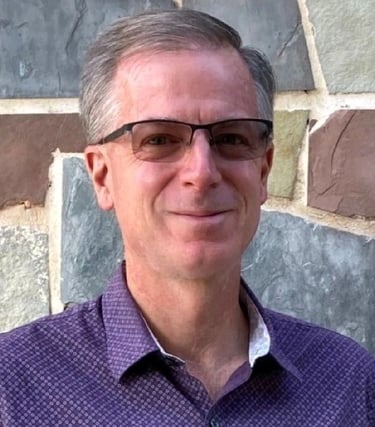

Brad Beauchamp is an electric vehicle and commercial transportation leader with extensive experience spanning product strategy, sales, and operations across the automotive and zero-emission vehicle sectors. He currently serves as EV Product Segment Leader at Blue Bird Corporation, where he supports the development and market success of electric school bus platforms and alternative fuel solutions. Brad brings a strong background from roles at General Motors, BrightDrop, and ZEVX, where he led medium-duty truck marketing, client solutions, and product management initiatives focused on fleet electrification and commercial EV adoption. He holds an MBA in Global Management (International Business) from the University of Phoenix and a BS in Industrial Engineering and Technology Supervision from Central Michigan University.
Haukur (Hawk) Asgeirsson
Hawk Utility Consulting
Affiliated with Pacific Northwest National Laboratory
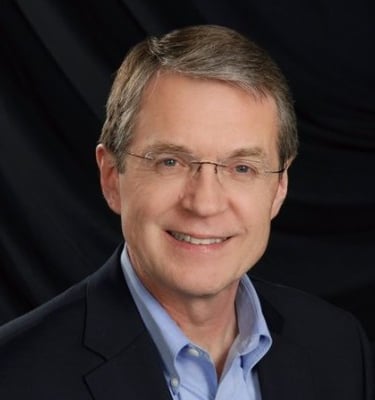

Haukur (Hawk) Asgeirsson is active in IEEE and SAE standards development work that is focused on resources that interconnect to the electric power system. He was a working group lead that developed IEEE 1547.9 Guide on interconnecting energy storage to the electric power system and an annex on electric vehicle V2G. Hawk also participates in Society of Automotive Engineers (SAE) standards work updating SAE standards for V2G functionality and is a member of the IEEE SCC21 Standards Coordinating Committee. Hawk is currently affiliated with the Pacific Northwest National Laboratory.
Hawk retired after a 37-year career at DTE Energy as the Manager of Power Systems Technologies. In that position, he was responsible for deploying Distributed Energy Resources (DER) into the T&D planning and operating process, managing all DER interconnections and grants related to energy storage, smart inverters and plug-in electric vehicles where he worked closely with the Detroit automobile industry. Hawk was also instrumental in demonstrating and implementing low-cost smart grid sensor into the distribution system using a Distributed Energy Distribution Management system (DERMS) to supplement traditional SCADA system. Upon his retirement, his group had deployed enough sensors to provide 100% monitoring coverage of the electric distribution system. Hawk is a graduate of The University of Michigan with a Master’s in Engineering with a focus in Electric Power Engineering.
George Liu
Field Applications Engineering Manager
Pacific Power Source
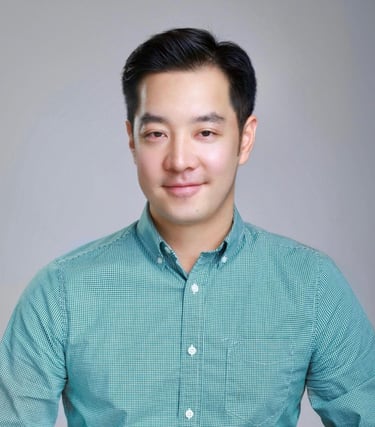

George Liu is a Field Applications Engineering Manager at Pacific Power Source, Inc., with over a decade of experience in electrical engineering focused on testing and validation of wireless and power electronic systems. His background spans batteries, electric vehicles, grid-connected products, and energy storage, with deep expertise in applications engineering, high-power test systems, and program execution. Prior to Pacific Power Source, George held senior engineering roles at National Instruments and Bureau Veritas (7layers), where he led complex validation projects, supported industry certification efforts, and contributed to global standards organizations. He holds a B.S. in Electrical Engineering from California State Polytechnic University, Pomona
Jaime Kolln
Senior Power System Engineer
Pacific Northwest National Lab
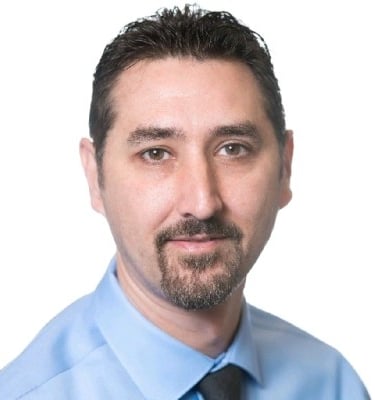

Jaime Kolln is a Senior Power System Engineer at Pacific Northwest National Laboratory (PNNL) leading the Applied Grid Architecture Program. With deep expertise in system integration and grid edge interoperability, he is responsible for research in the areas of distributed energy technology, power system communications, protection, controls, energy storage, transportation electrification, and distributed control solutions. Jaime is the administrator of the GridWise Architecture Council, which is a team of industry leaders who are shaping the architectural principles of an intelligent and interactive electric system.
Prior to joining PNNL, Jaime was the owner and lead system designer of a building automation and controls business for more than 15 years. He is active in several standards development organizations, alliances, and committees, including IEEE and Modular Energy Storage Architecture (MESA) Alliance.
Robin Milshtein
Senior Director, Business Development
New Sun Road
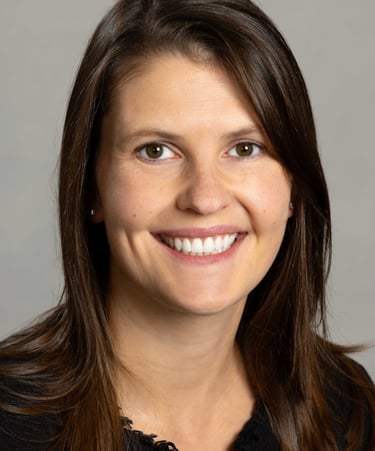

Robin is an engineer-turned-cleantech commercial leader with a passion for scaling tough tech. As Senior Director of Business Development at New Sun Road, she drives the deployment of AI-managed microgrids and distributed energy resources, accelerating access to renewable energy. Before that, Robin was Head of Business Development and Sales at WindBorne Systems, where she spearheaded the commercialization of a high-altitude atmospheric sensing platform to improve weather forecasting and climate science. She kicked off her career with a decade at Saint-Gobain, a Fortune 500 multinational, working across R&D, business development, strategic marketing, and corporate venture capital—ultimately leading investments in startups tackling the industrial energy transition. Robin holds a BS in Mechanical Engineering from Union College and an MS in Materials Science & Engineering from Worcester Polytechnic Institute.
Van Wilkins
Senior Vice President, Operations
InCharge Energy
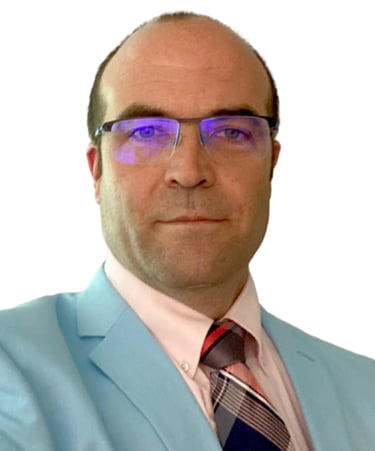

Van was integral in the startup of the operations for InCharge Energy with over 35 years of experience in construction, fleet fueling, facilities management, data center reliability, EV charging infrastructure development and EV solutions for OEM auto makers across the US, Canada, Latin America and Europe.
Previously, Van was the Director of Business Development and had P&L responsibility for ABM’s national accounts team as it built out a large portion of early adopter EV infrastructure. Prior to that Van operated several TEGG service franchises in Arizona and Virginia for Electrical Maintenance and Testing.
Nick Fiore
Clean Transportation Innovation Manager
SDG&E


Nick Fiore is Clean Transportation Innovation Manager at San Diego Gas & Electric. An experienced partnership and outreach leader with a demonstrated history of building and leveraging high-impact relationship, Nick has previously held key roles at EV Match, Unstoppable Domains, and the British Consulate General. With experience managing outreach for political campaigns, directing nonprofit initiatives, and serving as an adjunct professor, Nick brings a multidisciplinary approach to innovation and policy. He holds a Master of Science in Public Policy from the London School of Economics and a Bachelor of Arts in International Relations from Florida State University.





